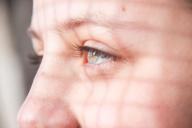Lots of things from our childhood affect us later in life, and stress is no exception.
A new study shows that being stressed in childhood can affect how your brain's reward system works.
Let's find out more.
It can help people
University of California, Irvine researchers have discovered a new brain connection that explains how early-life stress affects the brain's reward circuit, offering potential therapeutic targets for mental illness.
By studying the cellular changes caused by childhood adversity, they identified an overactive pathway within the reward circuit that disrupts pleasure and motivation in mice.

Silencing this pathway restored normal reward behaviors.
The team mapped connections of corticotropin-releasing hormone (CRH) to the nucleus accumbens, finding a previously unknown projection from the basolateral amygdala that suppressed reward behaviors in male mice.
Male mice exposed to early-life adversity showed reduced interest in sweet foods and entertainment.
Inhibiting the pathway restored normal reward behaviors in males, but not females.
More research needed
The findings shed light on the impact of early-life adversity on brain development and provide new insights into therapeutic targets for people with emotional disorders.
Further research is needed to understand the sex-specific effects of adversity on behavior. The study involved researchers from various departments at UC Irvine.









